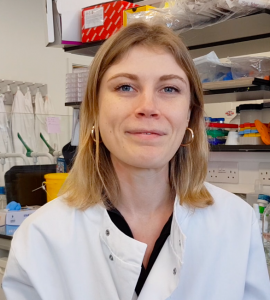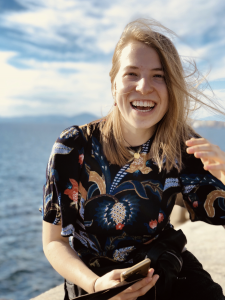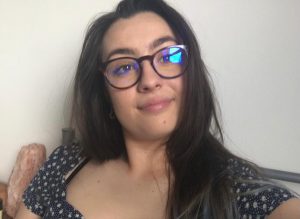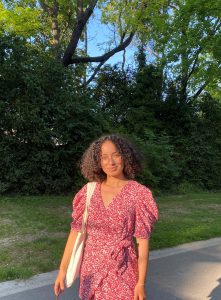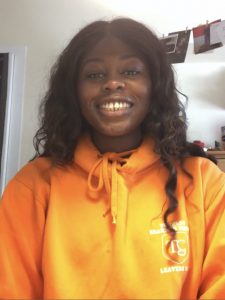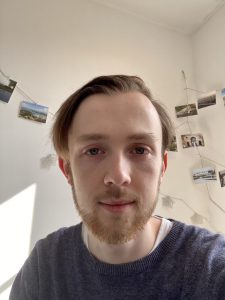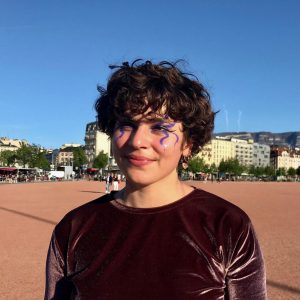This blog post was written by Leander Bischof, International Development student at King’s College London.
In this blog post, I am describing my experience with the Erasmus+ programme on climate migration and unaccompanied minors in Sevilla. The programme was delivered by the local partner organization INCOMA (International Consulting And Mobility Agency Sociedad De Responsabilidad Limitada).
I had a fantastic experience with the hosting organization and the facilities they used. In general, this trip was well organized from the start to the end. I first noticed this programme through an advertisement by King’s College London. Throughout the application process and afterwards, during the introduction and preparations for the training, the staff was very helpful and professional. The pick-up at the airport went smoothly and all other transportation was delivered reliably. Throughout the training, INCOMA staff members were always available to support us. The hotel accommodating us was of very high quality, which made this a very pleasant experience. Most importantly, the training was fully funded, flights, transportation, hotel, and food expenses were fully covered.
Additionally, the participants were well chosen, all were from extremely interesting backgrounds. One of my highlights during the training programme were the presentations of other training participants about their experience with climate migration since the chance to listen and have a talk with such people is usually very rare. It was particularly inspiring to listen to the participants from Laamiga, a London-based organization that supports and empowers migrant women in the UK. I am also thankful that the programme allowed me to make friends with such inspiring people and I hope to stay in contact with them. The training usually finished in the early afternoon and thus, we were given enough time to socialize and explore the city. I am sure there is excellent travel advice on the internet, so I will not go too much into detail about the location. However, I really recommend visiting the Plaza de Espana and the Alcazar, both very beautiful places. Luckily, we were provided with 25€ per day, which allowed us to visit these tourist attractions and try excellent Spanish food.
The programme itself consisted of 6 days of training. On the first day, we mostly received introductions into the training programme and the overall issue of climate migration. We talked about expectations we had for the programme and our reasons to join. The first day did not contain much training but was rather used to allow us time to familiarize ourselves with the other participants and the city of Sevilla.
On the second day we mainly focused on mental health and its importance for both migrants and people working with migrants. We learned how crucial a good mental health condition is to be able to support migrants in their struggles. The training provided many useful information on how to improve the mental wellbeing of yourself and others. Later, we listened to the presentations of other participants. The first presentation was by two social workers from Italy, the second was about volunteering experience in France and the third presentation was about immigration in the UK. My highlight of the day was surely the third presentation by one of the Laamiga members about their work and issues they and other organizations face due to UK politics.
The third day of training was about the inclusion of migrants into educational and vocational pathways. The presentations of that day focused on migration from Bangladesh and on national identities. An important learning outcome was that the domestic population often reacts very repellent and that much work needs to be done to deal with aggressions, fears, and stereotypes in the local population.
Day four included more information on mental health issues of refugees and how to help in overcoming traumas. We also heard a very impressive presentation from a Turkish reporter about illegal pushbacks by the Greek coastguard in the Mediterranean Sea. Her presentation included one of her documentaries, showing refugees on completely overcrowded rubber boats who where troubled by a large boat of the Greek coastguard. It showed the aggressive and endangering behaviour of the European Union to prevent refugees from entering their waters, which has led to so many tragedies in the Mediterranean Sea. In the afternoon, we were invited for an Erasmus+ evaluation session on the training programme.
The next day was my favourite day of the week. Since we could not visit a refugee centre in Sevilla due to Covid-19 outbreaks, we had the head of the refugee reception centres in Sevilla come to us. His presentation had a strong focus on the reception system in Spain and on the issue of climate migration. Afterwards, we listened to the presentation of a cultural mediator who works with unaccompanied minors in Italy. Hearing his presentation was very captivating and inspiring. The presenter himself came as an unaccompanied minor from Gambia to Italy, taking the backbreaking route to Europe which so many African migrants have taken, and which has costs so many lives. Through the deadly Sahara Desert to Libya, where kidnappers and modern slave traders are preying on migrants, to the Mediterranean Sea where people spend many days on overcrowded rubber boat and finally to Italy. It was very humbling to hear from such a first-hand experience about these hardships.
The programme of the final day consisted of a visit to the Bioalverde farm, an inclusion project for climate migrants in Sevilla. On this organic farm, migrants who were unable to find a job are given the chance to earn a living. Sustainability in every sense was the main maxim of the farm, greatly supported by the local population. This last day was a fantastic ending for this trip.
On the next day, early in the morning we were brought back to the airport and flew back to London. In total, I can say the training programme was an amazing experience, and I am highly recommending this to all interested students and staff members at my university.
Find out more about Kairos: http://kairoseurope.co.uk/
Find out more about the training opportunities: https://migrationresearchgroup.wordpress.com/

